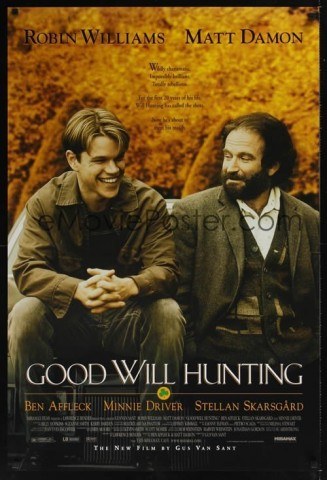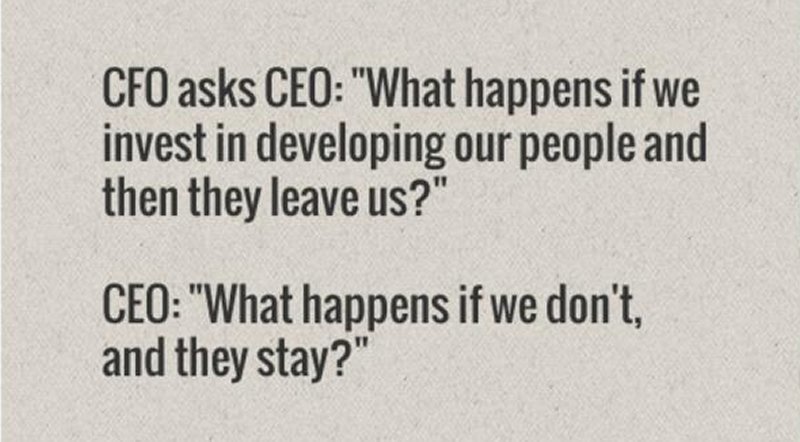In order to talk about how to use feedback for learning we need not to view feedback as sources of conflict but rather as transformative chances to generate a new and needed organizational structure.
 I found one of the most beautiful definition of love in the movie Good Will Hunting: a soulmate is somebody who challenges you. Not somebody who listens, takes care and understands you. No doubt these things are important too but a soulmate is above all somebody who challenges you, provokes you to be with yourself and carry on your path.
I found one of the most beautiful definition of love in the movie Good Will Hunting: a soulmate is somebody who challenges you. Not somebody who listens, takes care and understands you. No doubt these things are important too but a soulmate is above all somebody who challenges you, provokes you to be with yourself and carry on your path.
Challenging someone is, therefore, not just the annoying behavior of an heckler but rather the act of love of somebody that looks at you and thinks “you can be better than this”.
I still remember, a few years ago I was running a training course and a colleague of mine asked me whether I had given a feedback to a participant. “Of course!” was my reply. It wasn’t true and I was afraid of giving that feedback.
What happened next was the most astonishing and, at the same time, the most simple thing for me: my colleague went to that participant and asked him if I had actually given him any feedback and, ultimately, she caught me in a lie.
This is one of the facts that mostly left a mark in my career and that colleague is someone I am very grateful to.
Since that day I have learnt a few things:
- whoever just tells you you are good and can’t be bothered to tell you anything else, is actually treating you with superficiality and disinterest
- being given an inconvenient, and even embarrassing feedback, is always difficult. The alternative is “to get away with it” in a way or, in another way, to sink one more centimeter in our little/big quagmires.
- you can train yourself to receive feedback, to be thankful also when a volcano is firing inside of yourself because an open-minded attitude allows you to understand, make progress and not to lose any chances to challenge yourself
In a company setting, it is not easy and often people are afraid of displeasing, offending or entering a conflict if they say certain things. But paraphrasing a well known quote, let’s try to imagine a boss’s internal dialog
- What happens if I give him this feedback and he gets offended and goes away?
- Ok, but what happens if you don’t and he stays?
Everybody wants to be “seen” and this also implies that others may see what we would like to hide. The real difference is: what can we do with such information? How, in our workplace, can we be generative also in the face of our own or other people’s inadequacy and failure?
I am presenting you a case I consider emblematic. This case is about a company that, exploiting technology to the point of committing an invasion of privacy, managed to gain some pieces of information about an employee’s incorrect behavior. On the basis of such information, the company ended the working relationship with him.
The article questions the appropriateness and legitimacy of some investigation methods, however, while I was reading it, my attention drifted to something else. I was struck by the fact that both the company and the HR managers lost a good opportunity to play their role from a management perspective. They took shelter behind their position and pursued it in a pragmatic, and yet poorly generous or inspired way.
Sometimes, when we give feedback, we find it difficult to “prove” it or to objectively report the dysfunctional behaviors we intended to underline: often times people who receive our feedback try to explain, argue or even hide certain facts. So, everything is up to our good will, sensitivity or willingness to be challenged by other people’s feedback.
In this case, on the contrary, the fact the the employee had been “framed” does not, at least in my opinion, ends the story, it is rather a precious opportunity to sit at a table and make a new start. The very fact of having iron-clad evidence does not necessarily terminates the work contract.
The HR manager could have spoken with the employee in order to build a new agreement with him, one that would keep into account the mistakes he had made while at the same time opening new communication channels and developing a stronger and more consistent alliance. “We know what happened but we invested in you and we would like to keep on doing it…what do you think? How can we start from now on?”
In my opinion, the HR manager also lost the opportunity of accompanying the company management throughout this path. HR members could have used their added value to negotiate with the management (who is necessarily more business and production-oriented) and help their employers take on a different, open-minded and forward-looking stance.
These considerations are derived from an event I know little about, however, they are also based on my experience in coaching, assessing and consulting HR managers and in training managers on the job: it is not always easy to use feedback to restore spoiled relationships and start over again after a failure or a professional “betrayal”.
Often times we choose to close the door. This might seem like a demonstration of “strength” but, in my opinion, it hides an underlying frailty that needs to be worked out and thought about.

Scrivi un commento